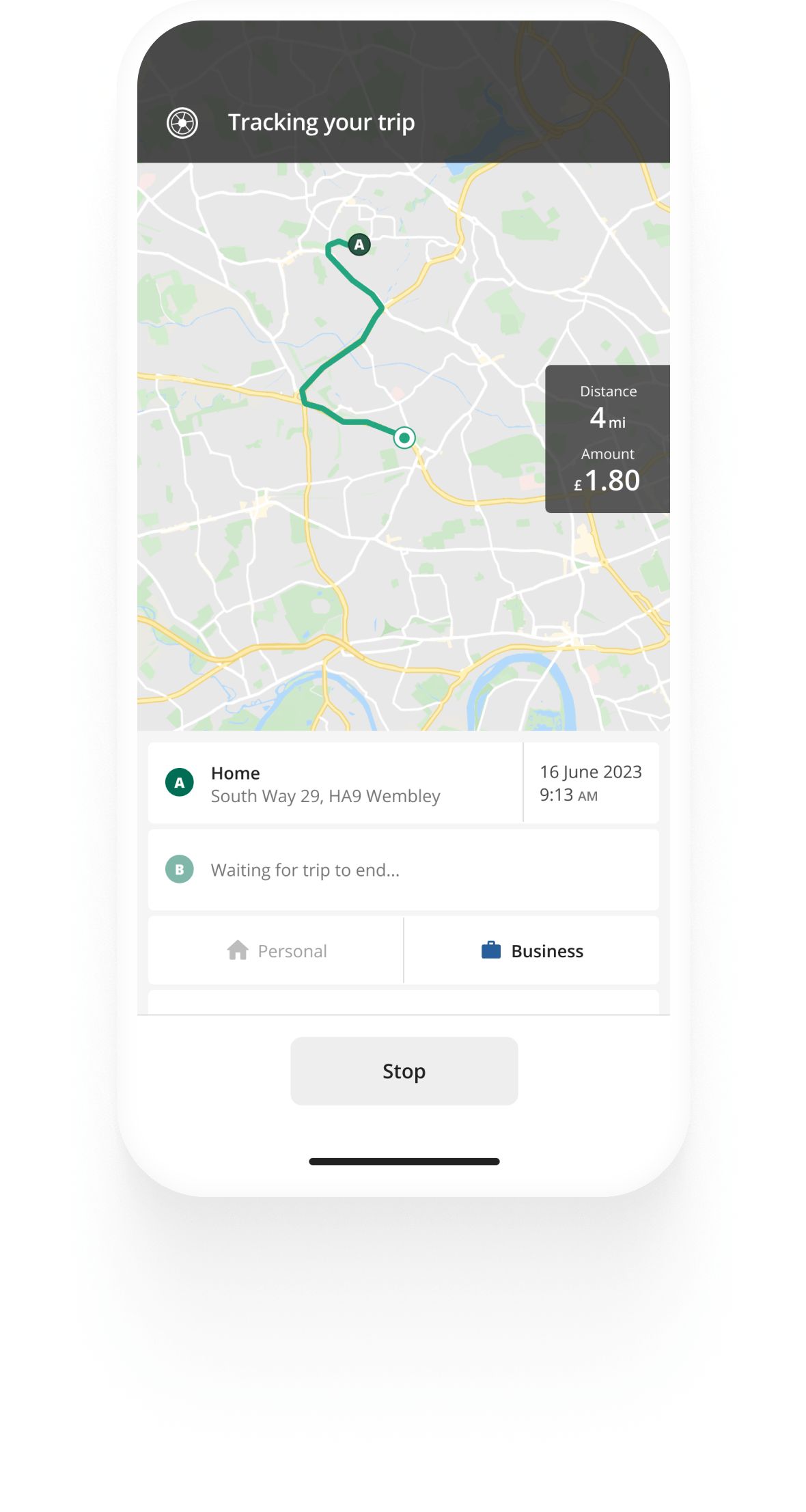Track mileage automatically
Get started
HMRC travel expenses guidelines
If you are a UK resident who travels for work, your business-travel expenses likely qualify for either reimbursement or tax relief.
HMRC travel expenses guidelines are a somewhat complicated matter, but in this article, we will give you an overview of the things you need to know when you want to claim back money spent on travel that is necessary for work.
What qualifies as a travel expense?
The first thing to understand is that not all travel expenses are eligible for tax relief. Notably, HMRC only allows full tax relief on travel expenses that are "wholly and exclusively" for business purposes.
This means that if you mix business and personal travel, you will need to apportion the costs to determine which parts of your trip are eligible for tax relief.
Let's clarify which expenses HMRC recognises as business-travel expenses. These are costs that you incur while travelling for work purposes, such as:
- Train, bus, or airfare
- Car or van rental
- Mileage if you use your own vehicle
- Hotel or other accommodation
- Meals and refreshments (yes, this includes alcohol)
- Parking fees
- Tolls and congestion charges
One of the most common of these travel expenses is mileage. If you use your own vehicle for work purposes, you will need to keep a record of the dates and distances you travel for work, as well as the reason for each trip. The Driversnote automatic mileage log book makes tracking these things as easy as can be.
You can read all about best practices and HMRC rules in our complete guide to mileage in the UK.


Mileage tracking made easy
Trusted by millions of drivers
Automate your mileage log Automate your mileage log

Automatic mileage tracking and HMRC-compliant reporting.
Get started for free Get started for freeAre reimbursements for travel expenses tax-free?
As a rule of thumb, if the expenses were necessary for the work that was done, and if the reimbursement does not exceed the actual expenditure or per diem rates, the reimbursement will be tax-exempt.
You will need to keep records of your expenses as proof for your employer and/or HMRC.
What are per diem rates?
In an effort to simplify the process of tax deductions and reimbursements, HMRC publishes predetermined rates to cover business travel expenses. These can be used instead of being imbursed for the actual costs you incur.
A benefit to per diem rates is that you will not have to save receipts or invoices, you will simply have to be able to prove that you were on a business trip when the expenses were incurred.
There are per diem rates for both travelling within the UK and to other countries. In the UK, the HMRC per diem rates change depending on the duration and circumstances surrounding the trip. For the rest of the world, HMRC has published a list with the rates for countries and/or cities.
It is actually possible to negotiate higher rates than the standard ones set by HMRC. But this will require time and legal work.
Travel expenses for employees
If you incur travel expenses while doing your job, you have two channels through which you can recuperate your costs.
The most common practice is that your employer will reimburse you.
If you are not reimbursed in full, or at all, by your employer, you then have the option to claim tax relief on the remaining expenses you incurred because of your business travel.
Travel expenses for the self-employed
If you are a sole trader your business-related travel expenses are deductible from your taxable profits. What qualifies as travel expenses and the amounts that can be claimed for them follow the same rules as they would for an employee.
Travel expenses for employers
As long as you either reimburse your employees’ actual business-travel-related costs, or pay them after the per diem rate (either the standard one or a bespoke one you have negotiated with HMRC), you will not have to report or pay taxes on the reimbursement, as per HMRC’s website.
You will, however, need to keep records of all expenses and benefits you provide to your employees. This includes records of when and why the travel took place, along with receipts where possible.
FAQ

Tired of logging mileage by hand?
Effortless. HMRC-compliant. Liberating.
Latest posts
- Free mileage log book template
- Mileage claim calculator for the UK
- Benefit in kind (BiK) tax on company cars
Related posts
Free mileage log book template
27 March 2025 - 2 min read
Whether you're an employee or a business owner, it's crucial to keep good mileage records in a mileage log book.
HMRC Mileage Guide
13 February 2025 - 5 min read
Welcome to our guide on mileage claims and reimbursement in the UK. This guide will walk you through the rules that apply to your situation.
Free mileage log book template
27 March 2025 - 2 min read
Whether you're an employee or a business owner, it's crucial to keep good mileage records in a mileage log book.
.svg)
